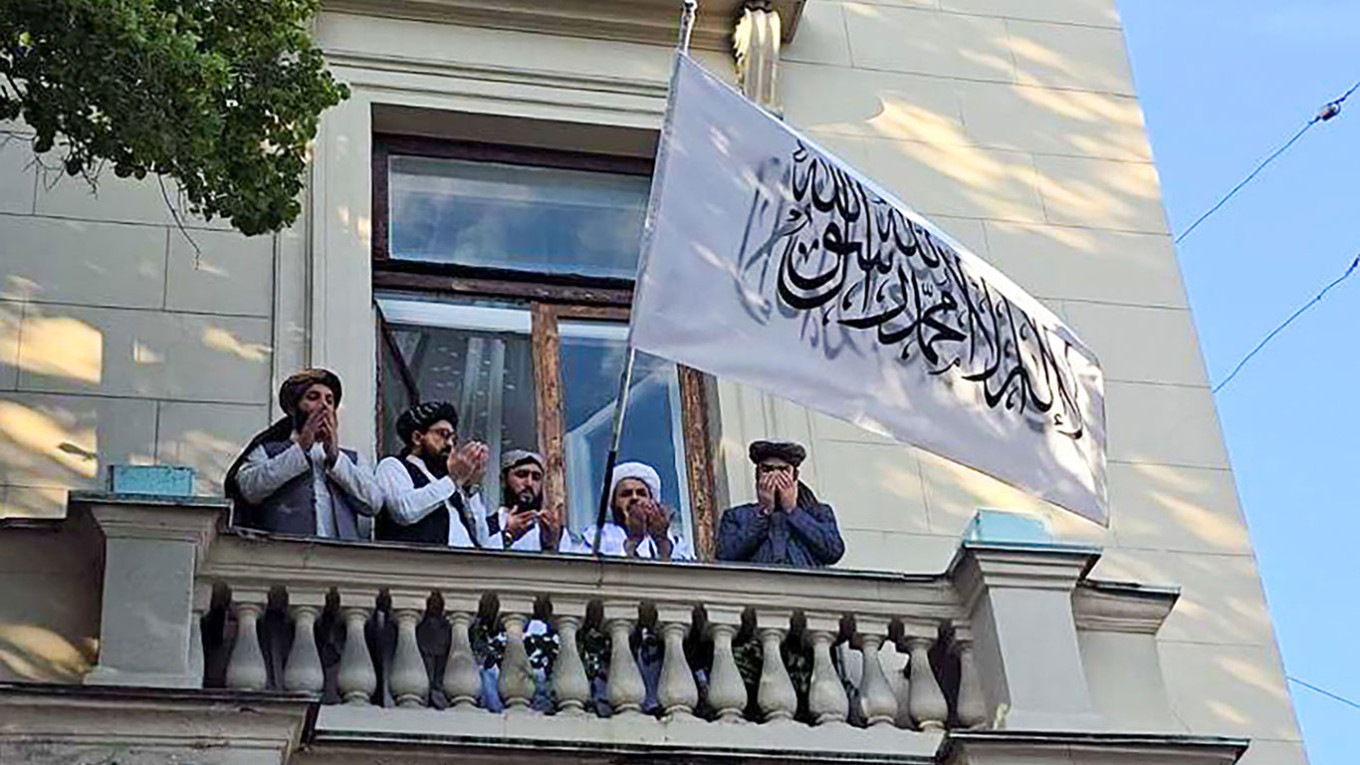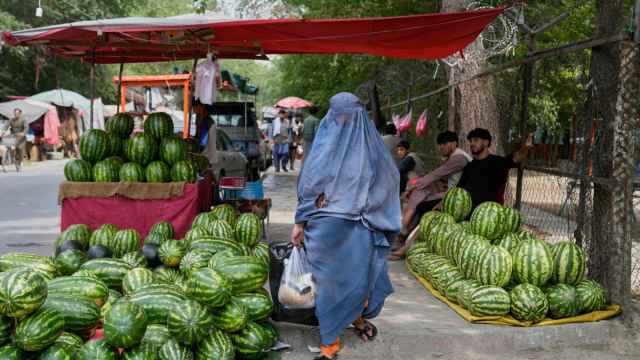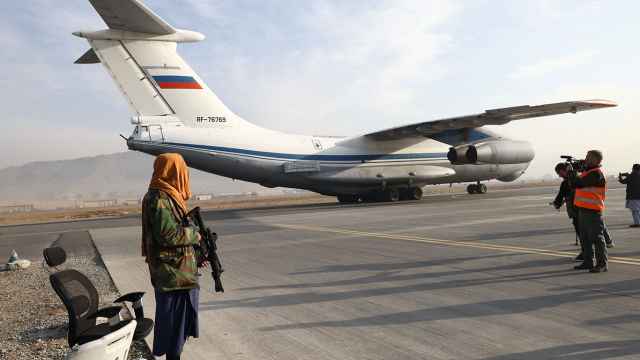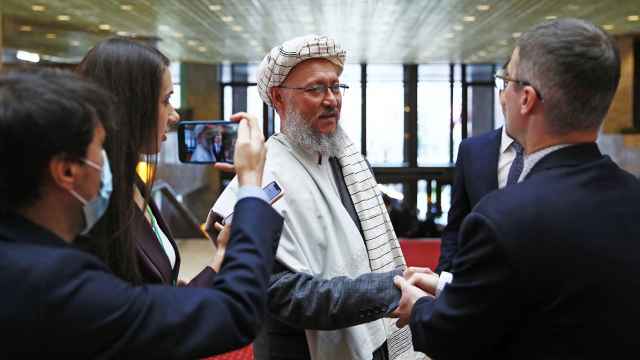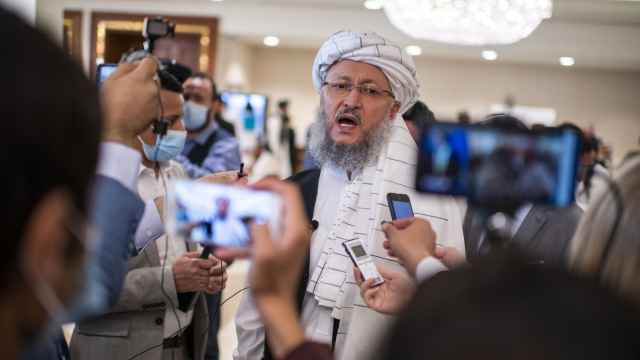Experts say Russia’s move to become the first country to officially recognize the rule of the Taliban government in Afghanistan is largely symbolic rather than one that changes the existing relations between Moscow and Kabul.
“Recognition of Islamic Emirate of Afghanistan is, one way or another, no more than a symbolic gesture, underscoring the friendly nature of relations between Moscow and Kabul at a time when the Kremlin is losing allies on the international stage,” said Ruslan Suleymanov, an expert on Central Asia.
This recognition is unlikely to significantly alter the current state of affairs, Suleymanov added, but “the Taliban, who do not shy away from symbolism, will be grateful to Moscow — though largely on a symbolic level as well."
According to Russian Ambassador to Kabul Dmitry Zhirnov, the decision to recognize the Islamic Emirate of Afghanistan was made by President Vladimir Putin at the suggestion of Foreign Minister Sergei Lavrov.
Zhirnov added that the move “demonstrates Russia’s sincere desire to build a full-fledged partnership with Afghanistan.”
Russia had earlier lifted its designation of the Taliban as a terrorist organization in April, nearly a year after Putin called the Taliban "allies in the fight against terrorism.”
Afghanistan’s government, for its part, called the recognition “a brave decision.”
Yet “contrary to popular belief, the decision had not come easily,” said Nikita Smagin, an expert on Russian foreign policy in the Middle East.
“Discussions have been ongoing since the Taliban seized power in Afghanistan. If there had been complete consensus, the Taliban flag would have been raised over the embassy in Moscow much earlier,” Smagin said, adding that Russia’s Foreign Ministry leaned toward recognition while attitudes within Russia’s security services were “far more ambivalent.”
Smagin also said that the recognition “offers limited tactical advantages” as “the Taliban are unlikely to be reliable partners, and Afghanistan itself cannot compare to Syria or Iran in terms of strategic importance.”
Political analyst and Afghanistan expert Andrei Serenko said that “today’s news from Russia has upset many Afghans,” referring to those who oppose Taliban rule.
The Taliban returned to power in 2021 after toppling the foreign-backed government and have since enforced a strict interpretation of Islamic law.
A Message from The Moscow Times:
Dear readers,
We are facing unprecedented challenges. Russia's Prosecutor General's Office has designated The Moscow Times as an "undesirable" organization, criminalizing our work and putting our staff at risk of prosecution. This follows our earlier unjust labeling as a "foreign agent."
These actions are direct attempts to silence independent journalism in Russia. The authorities claim our work "discredits the decisions of the Russian leadership." We see things differently: we strive to provide accurate, unbiased reporting on Russia.
We, the journalists of The Moscow Times, refuse to be silenced. But to continue our work, we need your help.
Your support, no matter how small, makes a world of difference. If you can, please support us monthly starting from just $2. It's quick to set up, and every contribution makes a significant impact.
By supporting The Moscow Times, you're defending open, independent journalism in the face of repression. Thank you for standing with us.
Remind me later.


